 January 1987 in “Journal of steroid biochemistry/Journal of Steroid Biochemistry”
January 1987 in “Journal of steroid biochemistry/Journal of Steroid Biochemistry” Norethisterone (jenapharm) therapy is effective for endometrial cancer.
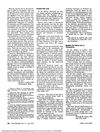 July 1975 in “Archives of Dermatology”
July 1975 in “Archives of Dermatology” Stopping tetracycline can lead to the disappearance of flat warts.
 336 citations,
August 2015 in “European Journal of Epidemiology”
336 citations,
August 2015 in “European Journal of Epidemiology” The Rotterdam Study found risk factors for elderly diseases, links between lifestyle and genetics with health conditions, and aimed to explore new areas like DNA methylation and sensory input effects on brain function.
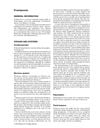 October 2015 in “Elsevier eBooks”
October 2015 in “Elsevier eBooks” Pramipexole can cause side effects like dizziness, sleepiness, hallucinations, and low blood pressure, and it's important to educate patients and keep doses low.
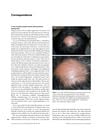 11 citations,
July 2008 in “International Journal of Dermatology”
11 citations,
July 2008 in “International Journal of Dermatology” Greying hairs may be protected from alopecia areata.
 9 citations,
September 1999 in “Journal of the European Academy of Dermatology and Venereology”
9 citations,
September 1999 in “Journal of the European Academy of Dermatology and Venereology” Skin ulcers from interferon may not depend on the amount given.
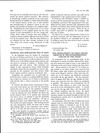 8 citations,
May 1941 in “Science”
8 citations,
May 1941 in “Science” Mouse embryos can develop in chick embryos, but they grow smaller with some organ issues.
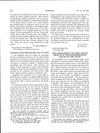 8 citations,
May 1941 in “Science”
8 citations,
May 1941 in “Science” Inositol helped cure hair loss around rats' eyes and improved their growth.
 1 citations,
February 1999 in “Journal of Paediatrics and Child Health”
1 citations,
February 1999 in “Journal of Paediatrics and Child Health” The document concludes that each reviewed medical book is useful for its specific area in pediatric care, especially the "Neonatal Formulary" for neonatal drug information.
 January 2016 in “Reactions Weekly”
January 2016 in “Reactions Weekly” A girl's hair loss from a pharmacy error improved after getting the right medicine.
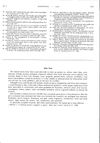 July 1980 in “International Journal of Dermatology”
July 1980 in “International Journal of Dermatology” Aloe vera gel is effective for treating skin conditions and is used in many cosmetic products.
 122 citations,
November 1984 in “Journal of the American Academy of Dermatology”
122 citations,
November 1984 in “Journal of the American Academy of Dermatology” No single treatment is consistently effective for alopecia areata, and more research is needed.
 45 citations,
January 1992 in “Dermatology”
45 citations,
January 1992 in “Dermatology” Half of the patients treated with a specific drug for skin cancer experienced hair loss not related to the drug's dosage.
 44 citations,
December 2010 in “Journal of Investigative Dermatology”
44 citations,
December 2010 in “Journal of Investigative Dermatology” Alopecia areata seriously lowers quality of life, especially affecting self-image, mental health, and social life.
 23 citations,
July 2021 in “Advances in Therapy”
23 citations,
July 2021 in “Advances in Therapy” Most people with Alopecia Areata don't get treatment within a year; it's costly and often comes with other health issues.
 15 citations,
January 2000 in “Dermatology”
15 citations,
January 2000 in “Dermatology” Minoxidil use may cause skin pigmentation loss.
 9 citations,
April 1987 in “International Journal of Dermatology”
9 citations,
April 1987 in “International Journal of Dermatology” Stopping the depression medication improved the woman's eyebrow hair loss, and a treatment for a skin condition caused by mites was effective.
 7 citations,
March 2019 in “Journal of The European Academy of Dermatology and Venereology”
7 citations,
March 2019 in “Journal of The European Academy of Dermatology and Venereology” A man developed a skin reaction from metronidazole, which improved after stopping the drug and starting steroids.
 7 citations,
January 2017 in “Dermatology”
7 citations,
January 2017 in “Dermatology” People who get alopecia areata after age 50 usually have mild symptoms, high chances of hair regrowth, and often have other health conditions.
 7 citations,
April 1987 in “International Journal of Dermatology”
7 citations,
April 1987 in “International Journal of Dermatology” Stopping imipramine reduced the woman's hair loss.
 4 citations,
June 2020 in “JAAD case reports”
4 citations,
June 2020 in “JAAD case reports” Permanent hair dye may cause total hair loss.
 3 citations,
February 1990 in “Contact Dermatitis”
3 citations,
February 1990 in “Contact Dermatitis” Contact dermatitis may speed up hair loss in some cases.
 2 citations,
April 1981 in “International Journal of Dermatology”
2 citations,
April 1981 in “International Journal of Dermatology” No treatment reliably changes Alopecia Areata's course; reassurance and possibly a wig are recommended.
 1 citations,
January 2020 in “Benha Journal of Applied Sciences”
1 citations,
January 2020 in “Benha Journal of Applied Sciences” Certain gene variations may increase the risk and severity of alopecia areata.
 1 citations,
October 2010 in “Cambridge University Press eBooks”
1 citations,
October 2010 in “Cambridge University Press eBooks” Hormonal therapies are effective for managing hair and skin symptoms in women with PCOS.
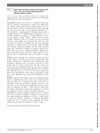 October 2023 in “Regular and Young Investigator Award Abstracts”
October 2023 in “Regular and Young Investigator Award Abstracts” Baricitinib treatment helped reduce hair loss symptoms in mice by decreasing inflammation-related immune cells.
 October 2023 in “Research Square (Research Square)”
October 2023 in “Research Square (Research Square)” Oxidative stress is linked to mild patchy alopecia areata.
 May 2021 in “Journal of the Endocrine Society”
May 2021 in “Journal of the Endocrine Society” A 23-year-old woman's missed periods were caused by a rare genetic disorder treated with hormone patches.
 May 2021 in “Journal of the Endocrine Society”
May 2021 in “Journal of the Endocrine Society” The 18-year-old girl likely has a condition called müllerian agenesis, which caused her to not have a uterus and experience no menstrual periods.
 July 2018 in “Our Dermatology Online”
July 2018 in “Our Dermatology Online” Alopecia areata does not affect areas with psoriasis plaques.






























